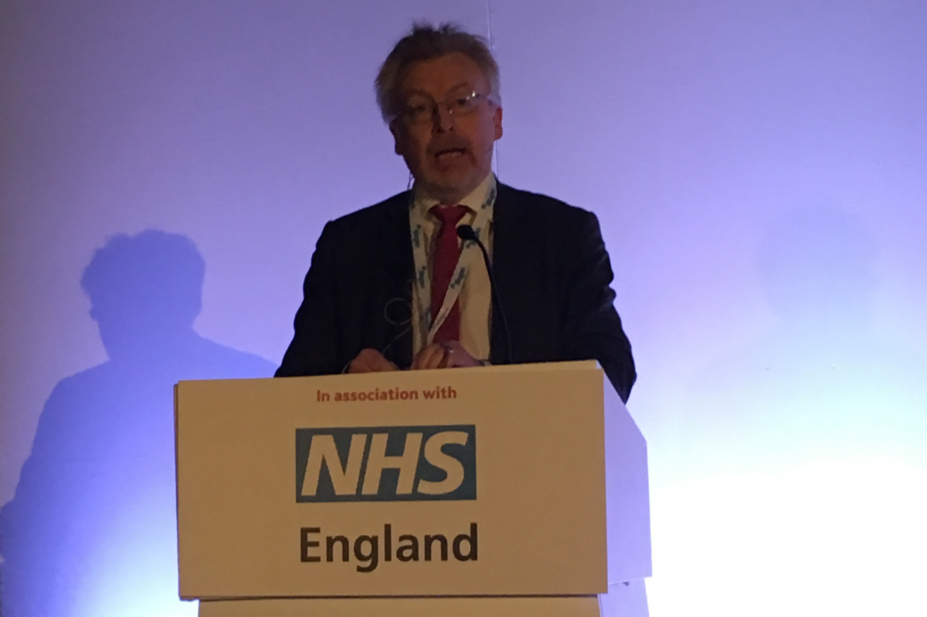
Julia Robinson / Royal Pharmaceutical Society
All pharmacists will take part in a “common foundation programme” after preregistration training, under plans being developed by NHS England and Health Education England (HEE), it has been revealed.
Keith Ridge, chief pharmaceutical officer for England, speaking at the Clinical Pharmacy Congress on 27 April 2018, also said he would like to see a merger of preregistration and MPharm training, but that this was “not going to happen in the near future”.
“In the meantime, we’ve got to prepare the workforce for these new roles in a sustainable way and not just top people up all the time,” he said.
“My equivalents in Wales and Scotland agree with me as well”.
In a wide-ranging speech, Ridge said that 2018 would be “the year for clinical pharmacy” but that this would only be sustainable in the long term with essential changes to education and training for pharmacists and pharmacy technicians.
The Royal Pharmaceutical Society called for a UK-wide pharmacy foundation programme in its response to an HEE consultation on the future NHS workforce earlier in 2018.
He said that new roles and training funded by the Pharmacy Integration Fund presented “an opportunity for community pharmacy to take on the clinical challenge” and that delegates should “watch this space” for further developments, for example, with the Digital Minor Illness Referral Service running in the north-east of England, which he said he was “very pleased” with.
He also said there needed to be a “societal movement” towards deprescribing to help “address the balance between treatment and non-treatment”, and he proposed setting up a “deprescribing network”.
Other areas mentioned in the speech:
- Medicines safety: Ridge revealed that NHS England will be publishing “a suite of metrics by the end of the year” for medicines safety, including the development of prescribing indicators in a dashboard, by NHS Digital and NHS Business Services Authority.
- Biosimilars: He said they were “a real opportunity for the NHS” and that pharmacists were critical to getting the best value from these medicines. NHS are preparing for adalimumab, the medicine that the NHS spends the most on in hospitals (£333m in 2016/2017), to come off patent, in order to ensure that it makes the most of the opportunity for savings, which Ridge estimated could reach around £200m.
- Antimicrobial resistance: Ridge described pharmacy as the “real star” of antimicrobial stewardship within the NHS but that there was still more to do to reduce antibiotic consumption in secondary care. He said that meeting the 72-hour review targets for sepsis were critical not only for dealing with sepsis but for preserving antibiotics as well.
Robbie Turner, director for England at the Royal Pharmaceutical Society, said Ridge’s talk was “really positive about the future of clinical pharmacy”.
“It highlighted the challenges that we’ve got around the use of medicines in the population but really identified a continually growing role of pharmacists and the use of their clinical skills in all settings to make sure we get the best outcome for patients and also the best value for the NHS,” he said.


